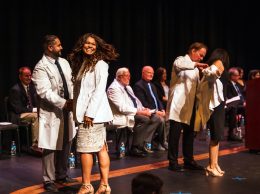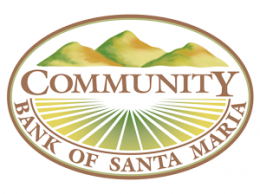Dubroff: Zodiac Aerospace acquisition may be good for Central Coast

Henry Dubroff
A deal hatched in France in late January will reshape the future of one of the region’s largest manufacturing enterprises.
Zodiac Aerospace’s sprawling Santa Maria operation, which builds fold-down seating for business class for Airbus and Boeing, will get a new owner later this year — at least if regulators approve. Its Paris-based parent company is being merged with larger Safran, another French aerospace parts company, in a stock transaction valued at around $10 billion.
Combined, the two companies will be the world’s No. 3 behind GE and United Technologies, when it comes to aerospace components, according to reporting by Aviation Week. For North Santa Barbara County, the stakes are plenty big.
Employment at Zodiac exploded past 1,500 in the post-recession years as the world’s airlines could not get enough of its lie-flat seat arrays for large commercial jetliners.
But Zodiac stumbled badly as it was unable to meet deadlines for orders and profit warnings ensued as it lost business to rival B/E Aerospace. The bad news trickled down to the Central Coast, where several rounds of job cuts ensued.
Safran, based in Lyon, had tried to buy Zodiac Aerospace in 2010 but was rebuffed. On Jan. 19, Zodiac’s core ownership, including a group of families that own about 24 percent of the stock, threw in the towel and agreed to support Safran’s tender offer of 29.47 euros per share or .485 Safran shares for each Zodiac share. The deal still needs final shareholder and regulatory approval and isn’t expected to close until later this year but the French government owns 14 percent of Safran and has indicated it will support the merger.
In some ways, Zodiac was a victim of its own success. Its seats were highly desired but it wasn’t able to deliver them on time, particularly to the Airbus A350 model. The Safran deal has been met with some skepticism by Wall Street as it’s not clear whether the combined company will be able to deliver promised efficiencies.
Safran, which makes engine and electronics components, said it will sell off non-aerospace operations to generate cash to pay for the merger and an expected special dividend to shareholders. It also promises 200 million euros a year in merger cost cuts and more savings are expected from procurement. “Safran would enable Zodiac Aerospace’s seats and interiors business to accelerate their recovery” and increase operating margins, a news release said.
We’ll leave the snarky comments about French efficiency and euro-zone regulation to others, at least for now. Safran said in the merger announcement that it likes Zodiac’s North American footprint, where earnings in U.S. dollars translate favorably into euros. My guess is that labor costs in Santa Maria are probably less than they are in France — even under California labor law.
Reading between the lines of the merger announcement, Zodiac Aerospace is likely to shed back office and administrative jobs but restore manufacturing operations to their prior robust run rate.
It is possible that Safran’s expertise in electronics and materials will make the next generation of seats smarter, lighter and more energy efficient. But it’s also possible that Safran will want to automate manufacturing more and more and that probably means more robots and fewer bodies.
Zodiac Aerospace has found a solution to its chronic problems in unclogging its output flow. But the Santa Maria operation is going to be part of a much larger enterprise and perhaps have less control over its own destiny.
One of the big unanswered questions is whether a company that’s partly owned by the French government will want to expand in the U.S. when the Trump administration is raising dire warnings about the future of the euro-zone. The airline seat factory in Santa Maria may turn out to be a barometer for measuring the real world impact of the new administration.
• Reach Editor Henry Dubroff at [email protected].











